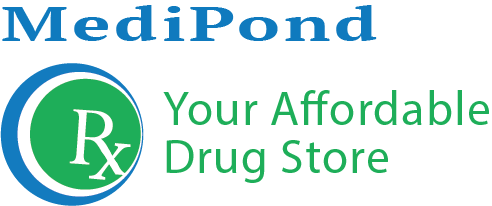Pioglitazone Oral Pill
Common Brand Name(s): ACTOS
SKU
Pioglitazone-Oral-Pill
Pioglitazone is a diabetes drug (thiazolidinedione-type, also called glitazones ) used along with a proper diet and exercise program to control high blood sugar in patients with type 2 diabetes. It works by helping to restore your body's proper response to insulin, thereby lowering your blood sugar. Controlling high blood sugar helps prevent kidney damage, blindness, nerve problems, loss of limbs, and sexual function problems. Proper control of diabetes may also lessen your risk of a heart attack or stroke. Pioglitazone is used either alone or in combination with other diabetes medications (such as metformin or a sulfonylurea such as glyburide). Talk to your doctor about the risks and benefits of pioglitazone.
See also Warning section. Sore throat, muscle pain, weight gain, or tooth problems may occur. If any of these effects persist or worsen, notify your doctor or pharmacist promptly. Remember that your doctor has prescribed this medication because he or she has judged that the benefit to you is greater than the risk of side effects. Many people using this medication do not have serious side effects. Tell your doctor right away if you have any serious side effects, including: new/worsening vision problems (such as blurred vision), bone fracture, reddish-colored urine, urgent need to urinate, pain while urinating. Pioglitazone may rarely cause liver disease. Tell your doctor right away if you develop symptoms of liver disease, including: dark urine, yellowing of eyes/skin, persistent nausea/vomiting, stomach/abdominal pain. Pioglitazone does not usually cause low blood sugar (hypoglycemia). Low blood sugar may occur if this drug is prescribed with other diabetes medications (such as insulin or a sulfonylurea). Low blood sugar is more likely if you drink large amounts of alcohol, do unusually heavy exercise, or do not consume enough calories from food. To help prevent low blood sugar, eat meals on a regular schedule, and do not skip meals. Check with your doctor or pharmacist to find out what you should do if you miss a meal. Symptoms of low blood sugar include sudden sweating, shaking, fast heartbeat, hunger, blurred vision, dizziness, or tingling hands/feet. It is a good habit to carry glucose tablets or gel to treat low blood sugar. If you don't have these reliable forms of glucose, rapidly raise your blood sugar by eating a quick source of sugar such as table sugar, honey, or candy, or drink fruit juice or non-diet soda. Tell your doctor right away about the reaction and the use of this product. Symptoms of high blood sugar (hyperglycemia) include thirst, increased urination, confusion, drowsiness, flushing, rapid breathing, or fruity breath odor. If these symptoms occur, tell your doctor right away. Your dosage may need to be increased. A very serious allergic reaction to this drug is rare. However, get medical help right away if you notice any of the following symptoms of a serious allergic reaction: rash, itching/swelling (especially of the face/tongue/throat), dizziness, trouble breathing. This is not a complete list of possible side effects. If you notice other effects not listed above, contact your doctor or pharmacist. In the US - Call your doctor for medical advice about side effects. You may report side effects to FDA at 1-800-FDA-1088 or at www.fda.gov/medwatch.
Write a Product Review


